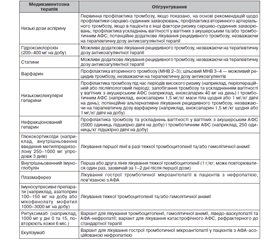Список литературы
1. Feigin V.L., Roth G.A., Naghavi M., et al. Global burden of stroke and risk factors in 188 countries, during 1990-2013: a systematic analysis for the Global Burden of Disease Study 2013. Lancet Neurol. 2016. 15. 913-924. https://doi.org/10.1016/S1474-4422(16)30073-4.
2. Putaala J. Ischemic stroke in the young: current perspectives on incidence, risk factors, and cardiovascular prognosis. Eur. Stroke J. 2016. 1. 28-40. https://doi.org/10.1177/2396987316629860.
3. Putaala J., Yesilot N., Waje Andreassen U., et al. Demographic and geographic vascular risk factor differences in European young adults with ischemic stroke: the 15 cities young stroke study. Stroke. 2012. 43. 2624-2630. https://doi.org/10.1161/ STROKEAHA.112.662866.
4. Griffiths D., Sturm J. Epidemiology and etiology of young stroke. Stroke Res. Treat. 2011. 2011. 1-9. https:// doi.org/10.4061/2011/209370.
5. Ferro J.M., Massaro A.R., Mas J.L. Aetiological diagnosis of ischaemic stroke in young adults. Lancet Neurol. 2010. 9. 1085-1096. https://doi.org/10.1016/S1474-4422(10)70251-9.
6. Putaala J., Metso A.J., Metso T.M., et al. Analysis of 1008 consecutive patients aged 15 to 49 with first-ever ischemic stroke: the Helsinki young stroke registry. Stroke. 2009. 40. 1195203. https://doi.org/10.1161/STROKEAHA.108.529883.
7. Дубоссарська Ю.О. Антифосфоліпідний синдром: сучасний погляд на добре відому проблему. Здоров’я України. Тематичний номер «Акушерство. Гінекологія. Репродуктологія». 2018. № 1 (29), березень. С. 31-32.
8. Miyakis S., Lockshin M.D., Atsumi T. et al. International consensus statement on an update of the classification criteria fordefinite antiphospholipid syndrome (APS). J. Thromb. Haemost. 2006. 295-306. DOI: 10.1111/j.1538–7836.2006.01753.x.
9. Головач І.Ю., Чіпко Т.М., Лазоренко О.О. Критеріальний і некритеріальний антифосфоліпідний синдром: концептуальні питання діагностики. Український ревматологічний журнал. 2021. № 3 (85). С. 26-31.
10. Wilson W.A., Gharavi A.E., Koike T. et al. Internatio-nal consensus statement on preliminary classification criteria for definite antiphospholipid syndrome: report of an international workshop. Arthritis Rheum. 1999. 42(7). 1309-11. DOI: dx.doi. org/10.1002/1529–0131(199907)42:7 %3C1309::AID-ANR1 %3E3.0.CO;2-F.
11. Kearon C., Parpia S., Spencer F.A. et al. Antiphospholipid antibodies and recurrent thrombosis after a first unprovoked venous thromboembolism. Blood. 2018. 131(19). 2151-2160. DOI: 10.1182/blood-2017-09-805689.
12. Taraborelli M., Reggia R., Dall’Ara F. et al. Long-term outcome of patients with primary antiphospholipid syndrome: A retrospective multicenter study. J. Rheumatol. 2017. 44(8). 1165-1172. DOI: 10.3899/jrheum.161364.
13. Tektonidou M.G., Andreoli L., Limper M. et al. EULAR re-commendations for the management of antiphospholipid syndrome syndrome in adults. Ann. Rheum. Dis. 2019. 78(10). 1296-1304. DOI: 10.1136/annrheumdis-2019–215213.
14. Asherson R.A. New subsets of the antiphospholipid syndrome in 2006: “PRE-APS” (probable APS) and microangiopathic antiphospholipid syndromes (“MAPS”). Autoimmun. Reviews. 2006. 6. 76-80. doi: 10.1016/j.autrev.2006.06.008.
15. Pires da Rosa G., Bettencourt P., Rodriguez-Pinto I. et al. “Non-criteria” antiphospholipid syndrome: A nomenclature proposal. Autoimmun. Rev. 2020. 19(12). 102689. doi: 10.1016/j.autrev.2020.102689.
16. Hughes G.R.V., Khamashta M.A. Seronegative antiphospholipid syndrome. Ann. Rheum. Dis. 2003. 62. 1127-1127. doi: 10.1177/0961203319826358.
17. Rodriguez-Garcia J.L., Bertolaccini M.L., Cuadrado M.J. et al. Clinical manifestations of antiphospholipid syndrome (APS) with and without antiphospholipid antibodies (the so-called ’seronegative APS’). Ann. Rheum. Dis. 2012. 71. 242-244. doi: 10.1136/annrheumdis-2011–200614.
18. Abreu M.M., Danowski A., Wahl D.G., et al. The relevance of “non-criteria” clinical manifestations of antiphospholipid syndrome: 14th International Congress on Antiphospholipid Antibodies Technical Task Force Report on Antiphospholipid Syndrome Clinical Features. Autoimmun. Reviews. 2015. 14. 401-414. doi: 10.1016/j.autrev.2015.01.002.
19. Garcia D., Erkan D. Diagnosis and management of the antiphospholipid syndrome. NEJM. 2018. 378. 2010-2110. doi: 10.1056/NEJMra1705454.
20. Sciascia S., Amigo M.-C., Roccatello D., Khamashta M. Diagnosing antiphospholipid syndrome: ’extra-criteria’ manifestations and technical advances. Nat. Rev. Rheumatol. 2017. 13. 548-560. doi: 10.1038/nrrheum.2017.124.
21. Uthman I. et al. Management of antiphospholipid syndrome. Annals of the Rheumatic Diseases. 2019. 78. 2. 155-161.
22. Cervera R. Antiphospholipid syndrome Thrombosis Research. 2017. 151. Suppl. 1. 43-47.
23. Dufrost V. et al. Increased risk of thrombosis in antiphospholipid syndrome patients treated with direct oral anticoagulants. Results from an international patient-level data meta-analysis. Autoimmunity Reviews. 2018. 17. 10. 1011-1021.

